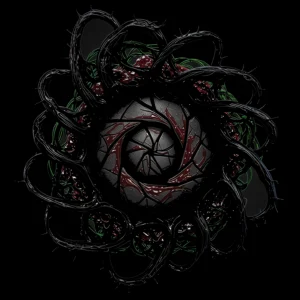
THE ACQUISITION
Yelena Gorgo finalizes her takeover of a video production company to infiltrate XWF broadcasts with subliminal cult messaging. Emilia Glazkov aids the indoctrination of key staff as part of the plan to distribute a corrupted broadcast at May Day that triggers mass hysteria—unleashing the Black Rainbow's influence on the XWF audience for the first time. The chapter concludes with Maraeth’s ritualistic promo targeting James Shark for the Universal Championship.
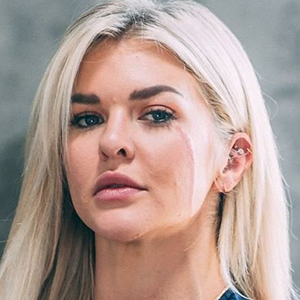

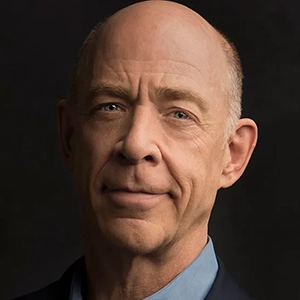

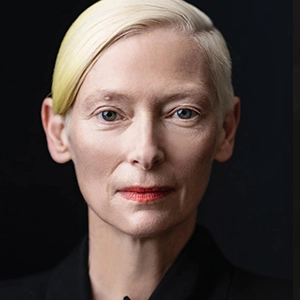
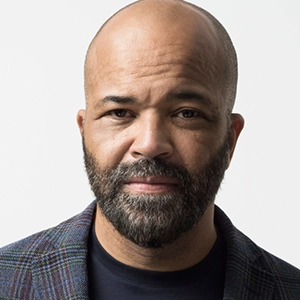
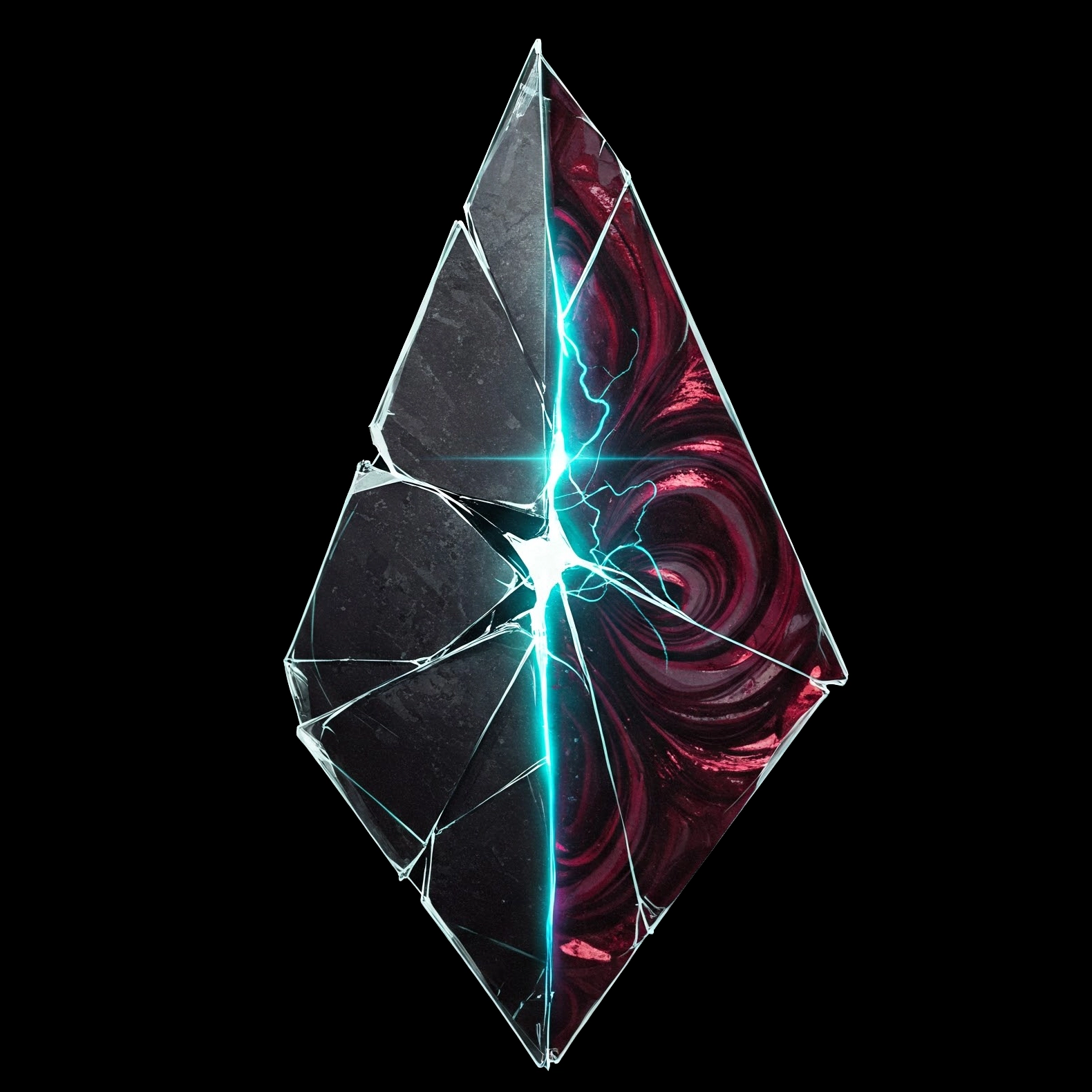
The mouth opens, and the song begins. The song begins, and the world ends.
GLENDALE, CALIFORNIA
APRIL 14 2025
MILES HINTON IS SLUMPED behind a placard on his desk that reads World’s Best CEO, fingers trembling like he’s trying to hold his soul in place. His blazer is draped over the back of his chair and his glasses are in his hands—not on his face, not even near it. He doesn’t look at me. He hasn’t for the past six minutes. Not since the paperwork arrived.
His office is a sprawling callback to decades past, smelling faintly of the distant memory of cigarette smoke. The blinds are drawn, muting the sun’s warmth behind strips of yellowed vinyl, leaving us drowned in the artificial light of four lamps positioned around the room, with tired shades and worn wooden bodies. The paneled walls are covered in posters—not of movies, but commercials produced by TeleVisual Productions over the years, most of which I don’t recognize because they pre-date my existence.
Cassie Bloom, the Executive Producer, stands to his left, composed as a stone statue sculpted in zero gravity. She is tall, spectral, with the gaunt elegance of a figure carved from pale marble—too still, too silent, like breath is optional. Her arms are folded, her gaze steady, her breath slow.
On his right, Garret Lyle, TeleVisual’s Chief Financial Officer, scrolls idly on a tablet, lips moving faintly as if whispering affirmations only he can hear. His frame is compact and thoughtful, dressed in a precision-cut jacket that does nothing to soften the coiled tension in his shoulders. His eyes, once sharp, now seem ever so slightly out of sync with the world—seeing something no one else can.
Neither of them speak unless I do. Neither of them blink unless it serves a rhythm.
Sitting in the chair next to mine is Emilia, one leg hooked over the other, causing her Gucci pencil skirt to ride up the length of her hose-tinted legs. Her hands are clutching a vessel, no larger than a curled fist—a teardrop of black glass so matte it swallows the light around it. Its surface is smooth but imperfect, faintly pitted like old river stone, as if it had been worn by centuries of unseen hands.
It does not slosh.
It does not glimmer.
It waits.
Alive in its own slow, terrible patience.
I allow the silence to stretch longer than required. Let it grow brittle. Let it creak under the weight of what none of them can say. Until at last I break it.
“Miles,” I say, voice smooth as stretched vinyl, “there’s no shame in losing to inevitability.”
His head lifts a fraction. Knuckles straining around his glasses causing the plastic to whine.
“You could have made it easy,” he mutters, not quite to me, not quite to himself.
Emilia’s voice cuts the air in half—low, deliberate, and etched in cold beauty.
“Easy is lie men tell themselves before kneeling,” she says, her words shaped by a lilt not native to this language—every syllable carved slow and certain, as if speaking was an act of violence.
Miles flinches, pathetically.
Cassie shifts slightly, almost imperceptibly, a breath drawn in through clenched teeth. Meanwhile, Garret continues scrolling, mumbling something that sounds like gratitude.
I lean back in the chair and offer Miles the grace of a small, almost pitying smile.
“You built something worth taking,” I say. “Seek comfort in that, if you can.”
Outside the walls the sound of life moves on—people passing conversations in the hallway, phones chiming in the distance. Forty two employees and not one sees the guillotine blade falling to kiss their necks.
The solid varnished door swings open and hits the wall with a thud.
Mallory Rye storms in—all rage and snapping heels and a lanyard swinging wildly around her hip. She’s sharp-angled and restless, with a reckless kind of beauty that looks like it was dragged backward through a hurricane and decided to stay that way. Her eyes gleam with the furious intelligence of someone who has gotten too used to being the smartest person in the room—and is about to learn that brilliance will not save her.
“What the fuck is this?” the Head of Production demands, voice sharp enough to crack glass.
Her eyes rake over me, then Cassie, then Garret before finally landing on miles—expecting support, finding only absence.
“TeleVisual doesn’t sell to corporate grave-robbers,” she spits, voice pitching higher. She’s seething, snapping in the stale incandescent light—so sure that outrage alone will shield her.
“Now while I’m breathing.”
“That can be arranged,” Emilia says before rising from her seat. She turns to face Mallory, to stare down her righteous anger. Her gaze focuses like a shadow reaching under a moonday sun.
“But we have other plans for you.”
Mallory takes a half-step back without realizing it. Her words falter. Her defiance fractures. The shield of her outrage falls to the floor before she does.
I don’t even turn my head to look but I smile—the kind of smile you offer just before pulling the trigger.
"Then," I say, "it’s a good thing we specialize in transitions."
Mallory doesn’t see it coming.
Garret sets down the tablet with silent care and comes around the desk. Cassie matches his movement, neither not so much walking as gliding across the room with cold deliverance—and together they descend upon Mallory.
Cassie grabs her by the upper arm—a vice disguised as a gesture of reason. Garret takes the other, pinning it tight against Mallory’s own chest. They move without urgency, without cruelty, like gardeners correcting a crooked stem.
Mallory fights. She kicks, elbows, snarls curses.
It makes no difference.
They drag her forward, toward the center of the room. Force her down onto the carpet—onto her knees—with greater strength than either appears capable of.
Miles makes a sound then, a low animal whine, his eyes raining with dejection, but he doesn’t protest.
I rise from my chair and stand next to Emilia. The Crow’s Tear cradled in her hands like an offering.
No words are exchanged. None are needed.
I cross the distance slowly, heels clopping across the worn rug, each step measured, inevitable.
Cassie and Garret force Mallory backward onto the floor. She bucks wildly, feral, but they are strong—and more importantly, empty. They pin her down at wrists and shoulders.
Emilia kneels beside her, a dark silhouette cutting against the anemic light. Then she pulls the cork from the Crow’s Tear with one slow twist.
The smell that escapes is not chemical—not sterile—but old, rich, rotted. Like earth turned too long beneath an eclipse.
Mallory screams—a raw sound, wild and wide-eyed—as Emilia lowers the vessel over her mouth.
"Drink," Emilia says, soft as breath. "Awaken."
Mallory clamps her mouth shut, refusing my gift. I could clamp down on her nose, denying breath. I could seize her face, lower and upper, and force her jaw open like an animal resisting treatment.
Instead, I simply speak, but not in my voice.
In OURS.
“Open. Your. Mouth.”
It is a brief glimpse into my Dark Half, into the power granted to me by Vorazd’s embrace. The momentary flash of unnatural power tethered Mallory’s unclenching eyes toward us, and slowly her lips do part in a silent scream.
Emilia leans forward. The black liquid drips.
The UNITY toxin slides into Mallory’s mouth, staining her tongue, vanishing between her teeth. At first she chokes, thrashing violently, heels hammering the carpet.
Then—a stillness.
A shudder.
Then nothing at all.
Garret releases her. Cassie too. They stand with machinelike precision, then step back without being told.
Mallory lies sprawled on the carpet for several seconds, chest rising and falling shallowly, eyes open but unfocused.
Then, slowly, she sits up.
Her mouth splits into a smile—not wide, not exaggerated—just wrong.
Wrong in its timing. Wrong in its temperature. And a soft, high-pitched giggle flutters from her lips.
She then rises to her feet, brushing herself off casually, like preceding decades of her life had been a dream.
Emilia caps the Crow’s Tear again and returns it to the folds of her jacket like an ember tucked away for later.
Mallory turns toward me. Her posture is perfect. Her breath even. Her gaze clear and eager, waiting for instruction.
She is no longer Mallory Rye. She is something else. Someone else. Someone better. Someone evolved.
I smile.
And this time, no pity softens it.
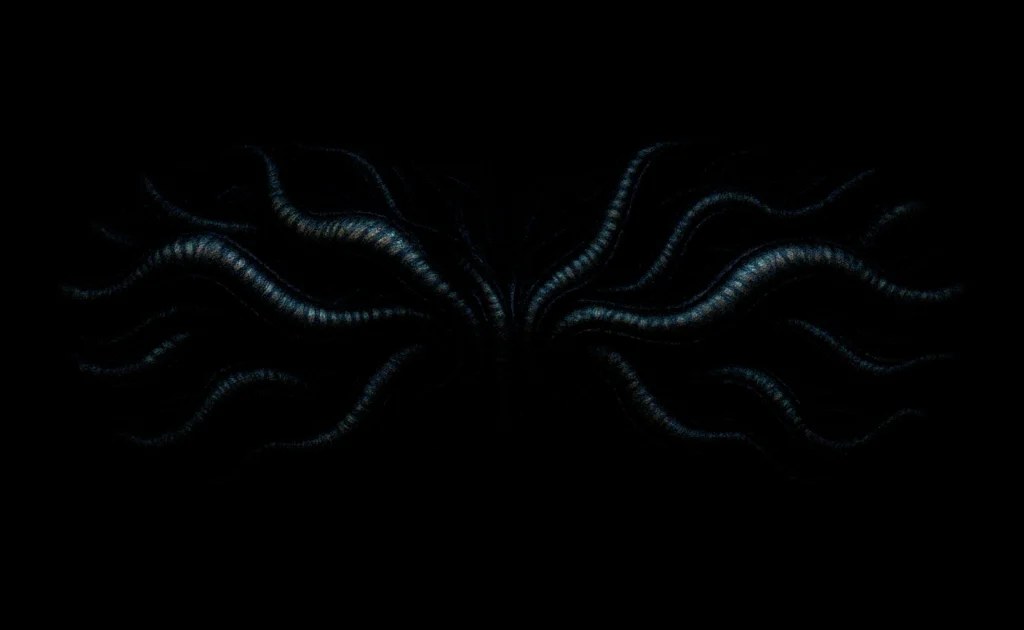
APRIL 23 2025
LATE AFTERNOON DROWNS the conference room in gold and dust from the dying sun cutting through the windows into the conference room. Miles Hinton is gone. No final meeting. No handshakes. No farewell email to the staff. Just absence. His body was found by a hiker yesterday in Badwater Basin, shriveled and mummified by the baking sun and leeching salt flat.
Cassie Bloom, newly installed chief executive, sits at Hinton’s former desk. A MacBook rests in front of her, glowing dimly. She types without looking at the screen, the movement mechanical, like breath or heartbeat—a function now, not a choice.
Garret Lyle is by the window. He whispers into his phone—low, soothing rhythms—speaking to the listener the way a monk chants into an empty hall.
Mallory Rye leans against the far wall, iPad tucked under her arm. She chews a pen between her teeth—a lazy, looping gesture. A holdover from her old nervous personality, but the feral rage that once animated her has been hollowed out, replaced by a glinting, venomous amusement.
They are not waiting for orders. They are waiting for confirmation.
At the head of the table I sit with Emilia perched beside me, one leg crossed over the other. My Advocate watches with detached serenity, her hands folded lightly on her lap. The room is a quiet drone of silent activity, the only sound a buzz of an overhead light struggling against its own death.
In front of me, centered neatly on the table, rests an envelope. The XWF production contract—ink still damp, signatures already bled into the fibers. A holdover from the previous regime waiting to be renewed before anyone knows that I now control the company.
I do not open it yet.
Instead, I let the moment stretch, thin and taut, admiring the faces that have settled into their new skins.
Cassie looks up from her tablet, blinking once. Slow and deliberate. Her sharp stare finds mine and she says, "I believe you find the results of our focus group impressive.” She then directs the floor to the Head of Productions.
Mallory, on cue tosses the chewed pen onto the table and smiles at me—wide, vacant, sweet as a corpse wearing a party mask.
She says, “The Resonance coding was simple enough to insert into the video signal. The only complication was the threshold of perception. Too high and the viewer becomes aware of the manipulation which can lead to unintended effects. Some subjects rebel. Others are driven too insane to control.”
Her iPad is untucked from her arm and she begins swiping across the screen. A large television, attached to the wall next to her, brightens from black to still footage of a room captured from a security camera. There are a dozen people sitting in evenly spaced chairs looking ahead at a projection.
“By masking the stimuli with a combination of brief exposure and low intensity, we have struck the perfect balance.”
Mallory taps the screen.
The video flickers into motion. Inside the sterile observation room, the dozen volunteers sit, their faces slack with polite attention. The screen in front of them flashes with bursts of color—promotional packages, wrestler highlights, glitched frames woven so subtly into the visuals that only a machine could notice.
For a moment, nothing happens. One man shifts in his seat. Another scratches his forearm, slow and anxious.
At the two-minute mark, a woman in a red sweater suddenly lunges sideways, tackling the man beside her so hard their chairs skid across the tile floor.
The room then erupts.
Half the subjects—almost precisely half—snarl and rise as one, feral and unseeing, fists and teeth and nails tearing into the others. Chairs slam into walls. Shrieks shatter the stillness. A man is dragged backward by his hair, his mouth a wet red hole of surprise. Someone’s glasses fly across the frame in a slow arc, landing cracked against the lens of the security camera.
Blood sprays against the white walls like a Jackson Pollock painting.
The other half of the group, those not afflicted, flail, scream, try to escape. It makes no difference. The enthralled are faster. Hungrier.
Inside ninety seconds, the entire room is a writhing, broken mass. Some are still struggling weakly, others convulsing in the final spasms of life. The projector screen continues playing above the carnage, untouched, washing the slaughter in bright, cheerful light.
Mallory pauses the video with a single tap.
The frame freezes on an image of a woman mid-scream, her teeth bared, blood matting her hair to her face—her gaze locked not at her attacker, but at the flickering images on the screen.
Mallory turns back toward me, smile still stitched proudly across her face like a doll sewn by a dead child.
"Initial exposure rate exceeds target parameters by fourteen percent," she says brightly. "We are optimizing. This represents our most extreme result."
I allow myself the luxury of a small nod.
Beside me, Emilia taps a single finger against the tabletop, a slow, patient beat, like a heart no longer willing to pretend it beats for human concerns. Her voice, weighted with authority eclipsed by mine only, directs at Mallory.
“Play the Vesuvius Trial.”
Mallory swipes again.
The next video loads with a softer edge. No blood, no screaming, just the muted buzz of crowd noise under low lighting.
A recording from Emilia’s nightclub, Vesuvius. Hundreds of bodies packed into a converted warehouse space in Miami Beach. A giant LED screen shifts in vibrant visualizations timed to the music spinning from the DJ table. A bar glows in the background in shades of red. Half-empty drinks clutched in sweating hands. Bodies writhing in sexual intrigue.
The screen suddenly glitches. Hardly noticeable to even me, let alone to the ones distracted by drugs, alcohol and lust. The Resonance stimuli flashes in inverted spirals, fractal skin blooms, warped sigils layered under brief moments of black frame.
No one notices.
Until they do.
A woman throws a drink. A man shoves someone who brushes past him.
The tension blooms fast—too fast—but not beyond plausibility.
Yelling.
Shouting.
A barstool gets lifted.
People begin stumbling into one another wildly.
The fight doesn’t look supernatural. It looks human. Stupid. Drunk.
But the ratio is exact—25% engage in physical altercations that spill over, drawing another quarter into the fray as the remaining bystanders whip out cell phones to film the melee. Others flee toward the exit, causing more chaos. Security intervenes too late.
“Pause,” Emilia orders.
Mallory touches the screen and the image freezes in a flurry of motion—boots, fists, glass—then turns to me with the same expression and says, "I call this one ‘plausible deniability.’ Perfect for rollout. Just enough confusion. Just enough heat. No blood sacrifice. No clean lines."
Emilia lifts her eyes, almost admiring. "A riot is still prayer," she says. "Only difference is volume."
I smile, slow and soft.
Cassie’s eyes move from the presentation to me. “We have already processed the beta run for CU:LT, as requested. If successful, we will be ready to launch at May Day.”
I glance sideways at Emilia.
Her mouth tilts into the barest curve—not approval, not joy—something more sacred. Recognition.
Above us, the dying light flickers against the ceiling tiles. For a moment, it looks like the walls themselves are breathing.
I place my hand atop the envelope. The flesh of the world has already begun to change.
This is just the paperwork.
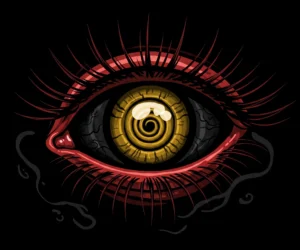
EXT. ORCHARD OF WOUNDS – DUSK
A blood-stained grove in the wilds outside The Vale. Here Miami sunlight dies differently—it spills like treacle across the canopies of ancient oaks and magnolias, filtering through leaves not green and lush, but withered and poisoned with darkness. Tattered sheets of material hang like webbing from the knotted branches, too thick to be cotton, too ominous to be something less than flesh.
The trees groan like they remember what happened here. And they do.
The wind doesn’t blow. It crawls. Not sweeping so much as slithering, pulling with it the scent of rust, sweat, and rotted citrus. No birds. No insects. Just the hush of breathless watching and the sway of withered grass.
At the grove’s center sits a STONE ALTAR, caked in lichen and old blood, its carvings etched in a script that predates language. The air shimmers faintly around it, warping like heat but without warmth.
On the altar: a black glass bottle—CONSECRATION—shaped like a tear, sealed with a plug of bone wax. The very same bottle used on Anarchy. The light doesn’t reflect off it. It vanishes.
Sitting at the foot of this altar, with the solemn stillness of a grave marker, is EMILIA GLAZKOV.
She is barefoot. Her feet are dusted with grayish ash that clings to the cuts across her soles. Her red dress, ceremonial and threadbare, hangs off her frame like a relic. In her lap rests a curved blade, its edge dull with use, its hilt wrapped in snake leather.
Her hair is unwashed, matted with bone beads and bits of dead leaf. Her eyes are shadowed with soot. They are not tired. They are ancient.
She opens her mouth and speaks—not loudly, but as if reading from scripture.
EMILIA
They say you are undefeated in the streets.
So was plague. So is time.
But this is not street, little shark.
This is soil that remembers screams of men.
And tonight—it festers.
She reaches with care toward the bottle, lifts it in two hands, and unstoppers it.
A small, wet sound. The air pulls back. The trees hush.
She tilts the bottle. A single drop lands on the altar. It hisses—not steam, but something wetter. More intimate. Like flesh recoiling.
The sigils flicker red. Beneath the stone, something moans. Low and long and muffled, like breath pressed through rotted wood.
From the blackness between two trees, a shape uncoils.
It does not walk. It arrives.
MARAETH.
Queen of what comes after. The Eater of Dreams.
They are tall—impossibly tall—but it’s not just their height. It’s the way the orchard leans beneath their weight. The way their presence stretches time.
They wear something that might once have been a gown, but now lives between fabric and fungus. It breathes when they do. Tendrils spill from their sleeves. Their antlered crown grows straight from their skull, wired with glass tubes, fossil teeth, and living moths.
Their face... isn’t. Where their eyes should be: twin coals of burning sulphur. Where their smile should be: something trying to become one.
They stand over Emilia, but do not look at her. Instead, their gaze is fixed straight ahead.
Their voice arrives a second before her lips move. A layered horrorscape of tonal shifts.
MARAETH
James.
You are a man of hands.
Hands that swing, that steal, that hit, that fail to hold
anything for long.
But what will you strike here?
What fist undoes time?
What jab silences truth?
A leaf, blackened and curled, detaches from the tree and lands silently beside her. The wind still doesn’t blow. It settles.
They move toward the altar, dragging darkness with them. The grass blackens under their bare feet. Their shadow splits into fingers.
MARAETH (CONT'D)
We have watched your saga, Shark.
You wear your own name like a threat—as if water is your kingdom,
as if anything you do leaves more than ripples.
But you are not tidal.
You are a tremor.
Brief. Crude. Loud.
Then gone.
We have seen your crowns.
The ones taken. The ones dropped. The ones left behind
in courtrooms, in police cars, in the piss-stained corners
of Las Vegas.
You are not a king.
You are a citation.
They stop in front of the altar. Their hands hover over the bottle but do not touch it. Their fingers flex, unfolding twice as long as they should be.
MARAETH (CONT'D)
You grew teeth in fear and called it hunger.
You bled for cameras and called it love.
You broke bones and called it justice.
But I know what you are.
You are bait.
EMILIA
You thinks this is theater.
That Maraeth is just branding.
She is Eater of Dreams.
And she has seen yours.
She has seen what haunts you in when you sleep.
She has witnessed your Silent scream.
And fed upon it.
MARAETH
That was not a dream.
That was the kindness.
That was the warning.
You built your identity from wound to wound.
And every time they stitched you shut,
you tore it open again.
Because pain is the only thing
that ever listened.
But I am not here to listen.
I am here to answer.
She turns her head—just slightly—toward Emilia.
MARAETH (CONT'D)
Shall we give him truth?
EMILIA
As always.
MARAETH
Kaydence.
You say her name like an alibi.
But we saw you leave.
We saw you lie.
A beat.
The orchard breathes.
Leaves flutter upward instead of falling.
Roots twitch.
The air pulses around the two women like lungs inflating. All at once, the wind reverses—curling inward. A dozen branches snap. The orchard shudders.
MARAETH (CONT'D)
We saw her eyes wait for you.
We saw the silence where you should have been.
You hold her image like a shield.
But you wear her absence like a cloak.
They move to a second tree. This one has no leaves. Instead, long strips of skin-like bark hang from its branches—each etched with a name, each vibrating faintly as she passes.
MARAETH (CONT'D)
You think you are feared.
But what they fear…
is your return.
They fear the moment you come home,
reeking of blood and apology,
demanding a crown from those who buried you long ago.
Emilia rises. She does not stand—she unfolds.
Her blade dangles from her fingertips as she walks. The ash under her feet parts like water. She stands opposite Yelena’s twisted form, Maraeth, the altar between them, and nods once.
EMILIA
Should I read him the charges?
MARAETH
He knows them.
Assault.
Drugs.
Kidnapping.
Abandonment.
Worship of self.
And the gravest of all:
Delusion.
A long silence.
Then—
The altar CRACKS.
A thin seam opens across its middle, seething with red light.
From it, smoke leaks upward, lazy and spiraling. Shapes move inside the smoke—familiar. James Shark’s hands. His smirk. His mugshot.
MARAETH (CONT'D)
The streets did not make you.
They marked you.
Tagged you like livestock.
Then left you to rot.
They lean in.
MARAETH (CONT'D)
You are not HIM.
You are what’s left when HIM has overdosed.
You are a reminder.
A throwback.
A cautionary tale told by coaches to rookies in locker rooms.
“Don’t end up like Shark.”
They step into the smoke. It does not move around them. It enters them.
Their crown flickers. A second set of eyes—smaller, reptilian—open beneath the first. Only for a second.
EMILIA
You say you are father.
And yet you fight like man with nothing left to lose.
So we will take it from you.
Everything.
A sound echoes through the orchard. Not a scream. Not a growl.
A bell.
Distant. Slow. Chiming with the weight of judgment.
MARAETH
Come to Ye Olde Commune, James.
Bring your fists.
Bring your felonies.
Bring your fake crowns and crooked smiles.
We will bring the soil.
The blood.
The void.
They turn to the camera. Their expression is not anger. Not cruelty.
It is fate.
They reach forward. Place their palm on the lens.
MARAETH (CONT'D)
You have bled in rings before.
But you have never died.
Not yet.
EMILIA (O.S.)
But you will.
MARAETH (O.S.)
And we will name the orchard after you.
And build a monument in the form of the XWF Universal Championship.
FADE OUT.
